College is contagious. There, I said it.
It’s the truth no one wants to hear: College is a toxic, sickly place masquerading as a social playground. Sure, you’ll make friends, attend parties and enjoy newfound freedom. But underneath the surface, lurking in the hallways and dorm rooms, is an unseen enemy: illness.
All day, hundreds or even thousands of people filter in and out of classrooms, hallways, dining halls, dorms and bathrooms, where germs are corralled and redistributed. Because we, too, are corralled, these germs are inescapable. Colleges attempt to address the issue but often fall short of truly containing viral illnesses. For example, Vanderbilt attempts to address the problem on our campus in numerous ways, including hand sanitizer stations, infographics displayed in school buildings and, most notably, “Flulapalooza,” an annual event dedicated to providing those on campus with free flu shots at the beginning of the year. However, their efforts are constrained, as college campuses serve as intensified models of how illnesses spread across the United States.
College exemplifies the challenge of controlling illness due to its high-density environment and shared spaces. These conditions create ideal circumstances for rapid disease transmission, mirroring the dynamics seen in densely populated cities. Research shows that close contact and limited personal space significantly increase the spread of airborne illnesses like influenza and COVID-19. Furthermore, the constant movement of students between campuses and their home communities adds an additional layer of complexity, as it facilitates the spread of illness beyond campus borders. When students return to campus after Christmas break, they bring a host of new bacteria that their family and friends have passed on to them. These factors limit the effectiveness of an individual college’s efforts, as it must address not only internal outbreaks but also its contributions to broader public health concerns.
Suddenly, college campuses seem like war zones where sicknesses compete to see which one can get to you first. You wake up each morning ready to conquer the world by delving into the experiences college offers — career fairs, class parties and networking events — but they are never as attainable or fun as they appear because someone is quite literally always sick. In a study conducted over only six months, 91% of the college student subjects reported catching a cold at least once. The same study found that college students get sick a substantial amount compared to the average adult.
This constant cycle of illness has only been exacerbated by the lingering effects of the COVID-19 pandemic. Health services confirmed that many individuals diagnosed with COVID-19 develop “long COVID,” which can lead to an additional three months of various illnesses. Furthermore, reports indicate a growing trend of people experiencing increased sicknesses in the post-pandemic period.
I got sick three times last Fall semester alone and was out of school for over a month last year with mononucleosis. Basically, I’ve gotten sick in college more than the rest of my life combined! One week you’re struggling through classes with a cold, the next you’re laid up in bed miserable with a stomach bug. And right when you recover? Guess what — someone in your class starts hacking up a lung, and it’s back to square one.
We know what makes college life a perfect storm for sickness: living in close proximity to others, stress from school, unhealthy eating habits, exhaustion and, above all, poor hygiene. Numerous initiatives and plans, such as free flu shots, have been used, but people continue to get sick. Why does this cycle happen? Because college campuses function as snow globes representing and embellishing the country itself — there is ultimately no escape from the spread of illness. It’s almost a running joke — if you’re in college, expect to get sick. It’s as much a part of the “experience” as exams or football games.
Illness shouldn’t be expected, but for now, the reality remains. College, for all its perks, leaves you feeling like a walking pharmacy, and we need to stop pretending that’s normal. I shouldn’t have to make three trips to the store for NyQuil re-ups within a month-long period. So, to all the first-years: Welcome to college. It’s fun, it’s formative and — spoiler alert — you’re going to get sick. Repeatedly.
Unfortunately, the contagion is that college cannot change because it is the byproduct of how society deals with sickness at large, just displayed on a smaller scale. However, there is no excuse for not trying to increase health on campus, even if it seems like an impossible task. For example, Rand Dining Hall received a 75 on its most recent health inspection, requiring a re-assessment for them to continue operations. It is extremely unsurprising that so many students are getting sick when those responsible for handling our food have been found not even washing their hands. Other issues included “food conditions, date marking, labeling and contamination prevention.” Making dining halls more clean and reliable is an easy way to boost health and limit sickness on college campuses.
Additionally, institutions could offer a Zoom option, as they did during the pandemic, to ensure that sickness never inhibits a student’s education, which is extremely costly financially, mentally and, clearly, physically. Even if they do not want to do live Zooms, they can at least record the classes that we are paying for and upload all class content, assignment announcements and possible changes to Brightspace to ensure no student falls behind.
By making more of a concerted effort to tackle sickness, college can become a safe haven for students and a break from the mania of everyday societal life rather than a stressor on our bodies. The first step is recognizing the problem and the need to address it.



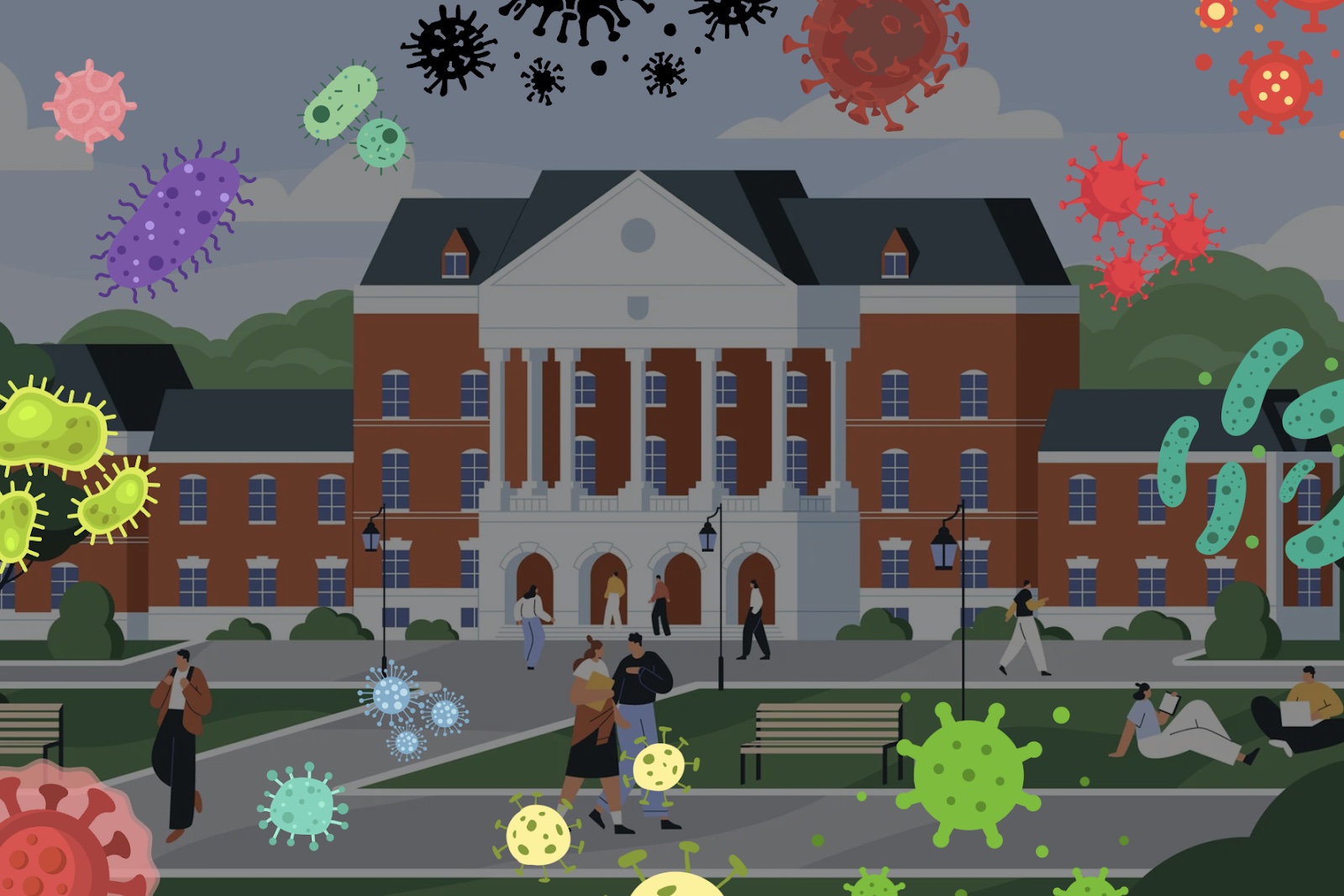

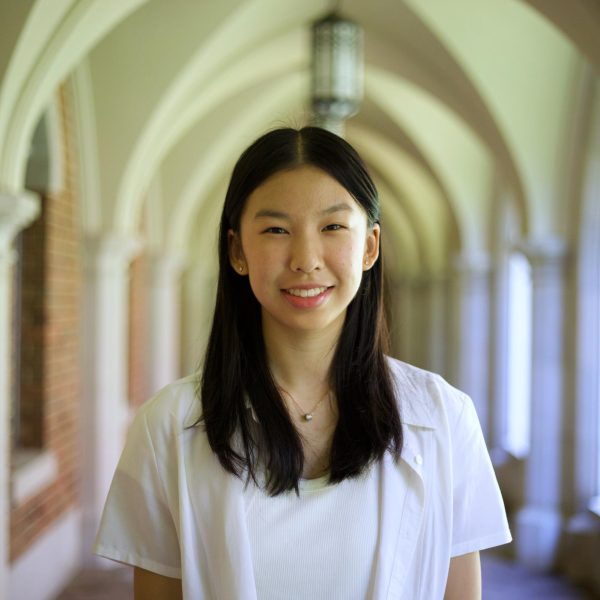
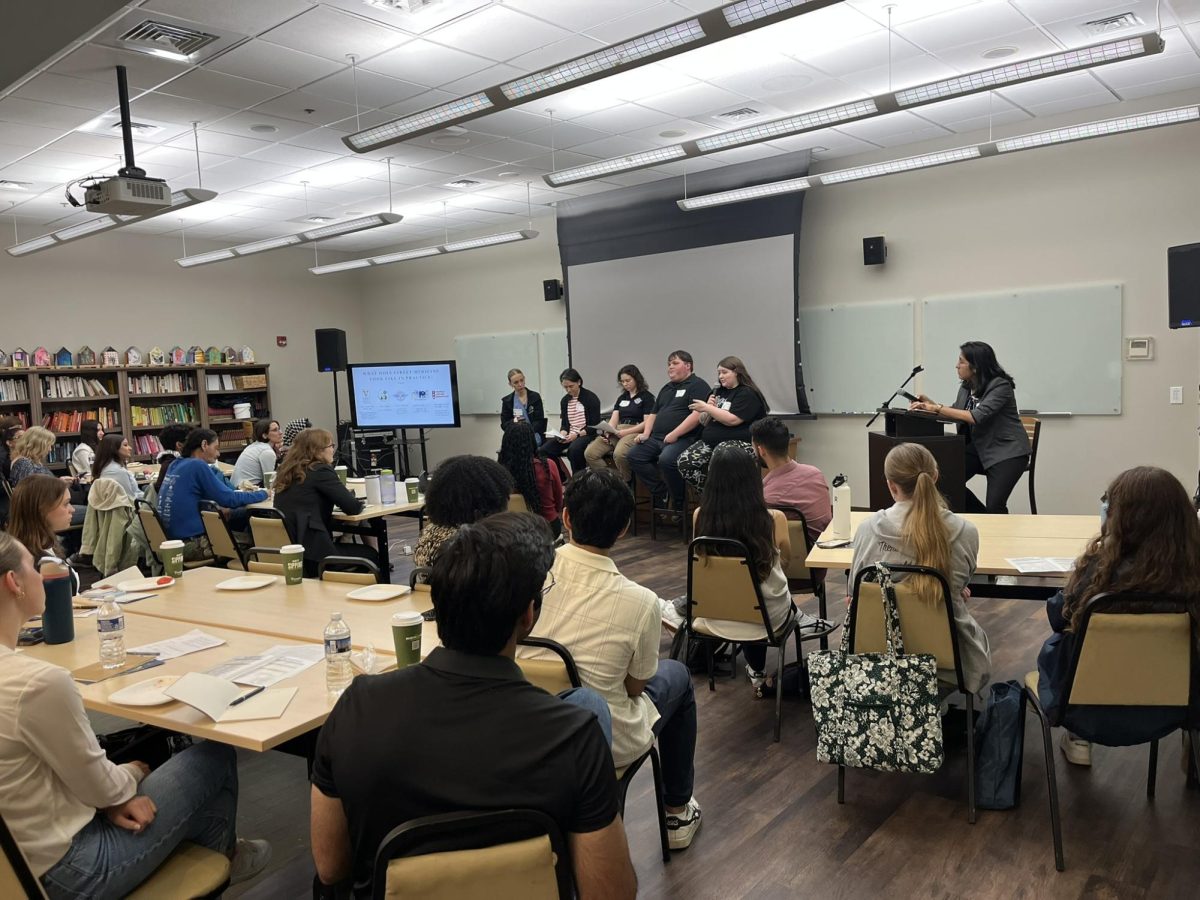
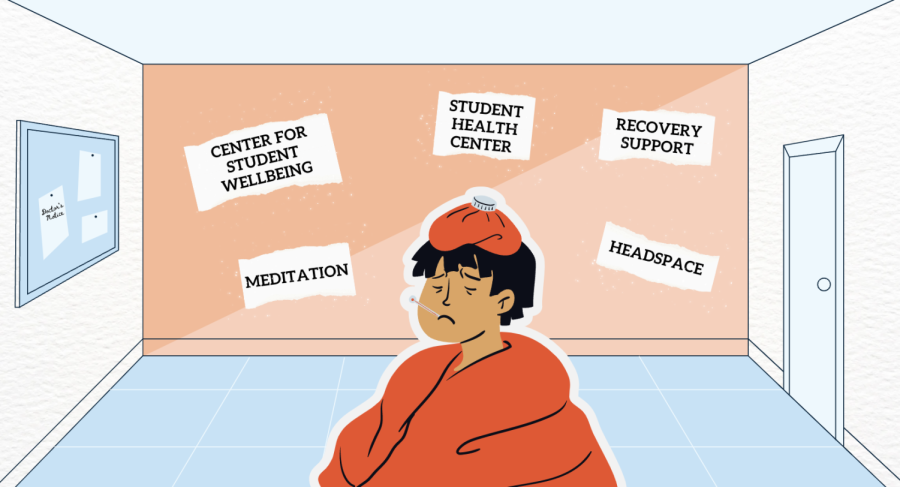
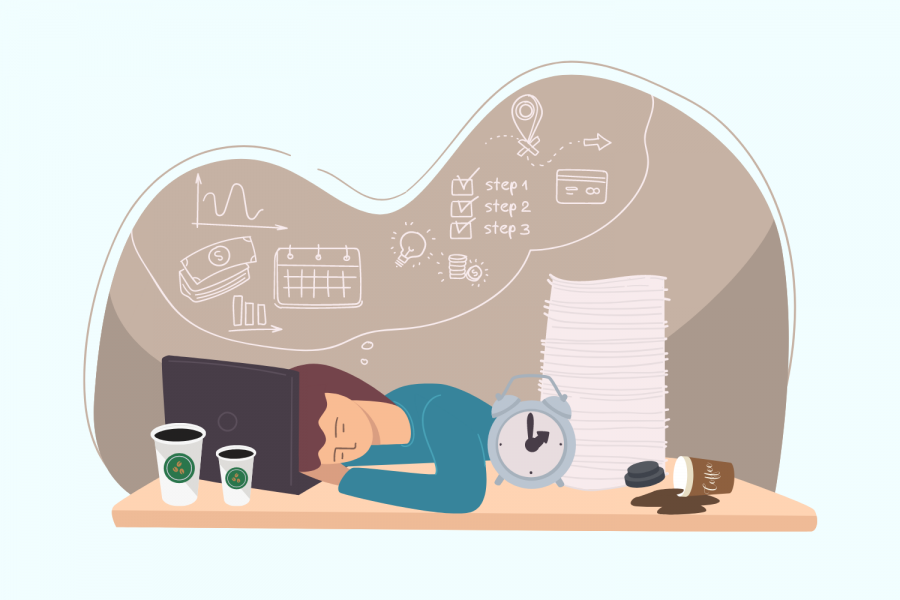
Disgruntled student • Jan 21, 2025 at 9:14 pm CST
Hey queen thanks for speaking the god’s honest truth especially in regards to failures of the institution. I got two separate instances of food poisoning from campus dining in one week my sophomore year and it gave me chronic illnesses. I developed post infectious gastroparesis, an inflammatory digestive functional disorder that caused me to lose 15 pounds rapidly and unintentionally. My hair fell out for sixth months afterwards. Also developed chronically elevated blood inflammatory markers and had to undergo an abdominal ultrasound and a bone marrow biopsy because there was concerns for cancer. Thankfully I do not have cancer but that’s thousands of dollars of medical bills down the drain bc campus dining failures to maintain food safety standards.
Anonymous Vanderbilt student • Jan 21, 2025 at 2:28 pm CST
I agree with every aspect of the article. One issue though is that a Zoom option presents challenges for the university because professors, theoretically, could teach from anywhere in the world. Vanderbilt has an anti-Zoom policy after COVID-19 for this reason.
And with the closing times with dining, I think Vanderbilt has proven that they want cost-effective ways of ensuring students are happy, and the two do not often go together. So, I agree with you, but I just think Vanderbilt will not prioritize student happiness if it is costly.